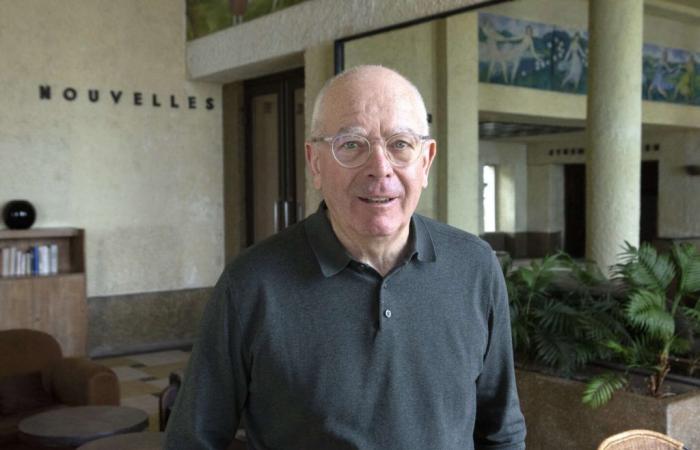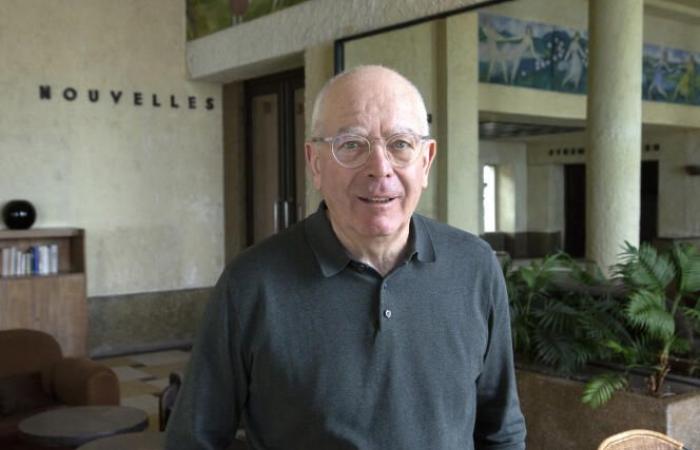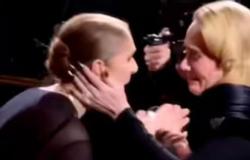“Que du vent”, by Yves Ravey, Minuit, 128 p., €17, digital €12.
Yves Ravey remains with remarkable consistency what we would allow ourselves to call a “Minuit writer”. With the exception of his first book, The Monkey Table (Gallimard, 1989), all his novels – almost twenty – have in fact been published under the white and blue cover of the editions now directed by Thomas Simonnet. They also correspond perfectly to a certain aesthetic tradition of the house, a subtle blend of minimalist irony and a taste for the strange, mixed with the beginnings of a rather singular Germanic tropism.
Professor of visual arts in the Jura, Yves Ravey also remained a discreet author, and even a little mysterious, whose work seems to have gradually shifted towards a form of elliptical and marital thriller, depressive but joyful, as evidenced by the recent and very successful Taormine (Midnight, 2022).
Only wind is in this vein, which could almost make you believe – including the title – a novel by Philippe Djian. We are in an indeterminate suburban area, where the characters have names from American series and experience mediocrely glorious destinies, shaped by troubled affects and shady motivations. Barnett, the narrator, a former soldier in Iraq, had a series of bankruptcies before trying to retrain in the discount and dubious business of cleaning products imported from Africa. He saw his wife Josefa leave him for a certain Spencer, a rather importunate history professor, while Sally, the wife of his neighbor Miko, owner of a chain of laundromats mainly used to launder drug money, left him offers without much preliminary to change his life in his company.
Perfect antihero figure
So what is this improbable scenario, which one would say is preferably intended for a telenovela? The writer obviously plays with clichés to construct, as usual, a story of relentless suspense, but biased: his empty narrator, the perfect figure of a somewhat spineless antihero, advances in a fiction which seems to do without him, where it will be up to the reader to guess the outcome of the blow planned by the seductive Sally, a « hold-up » a little too easy which risks falling apart before the planned escape to Veracruz…
From this thin framework of false thriller, all of Ravey’s art consists of constructing a novel in clear lines on a blurred background, where the turpitudes of the world create a strange, sad backdrop: dirty money, memories of the war (Barnett is a former commando, Spencer a specialist in the Second World War), the ugliness of expanding peri-urban areas, where swimming pools are dug next to sheds and kennels.
You have 19.07% of this article left to read. The rest is reserved for subscribers.







